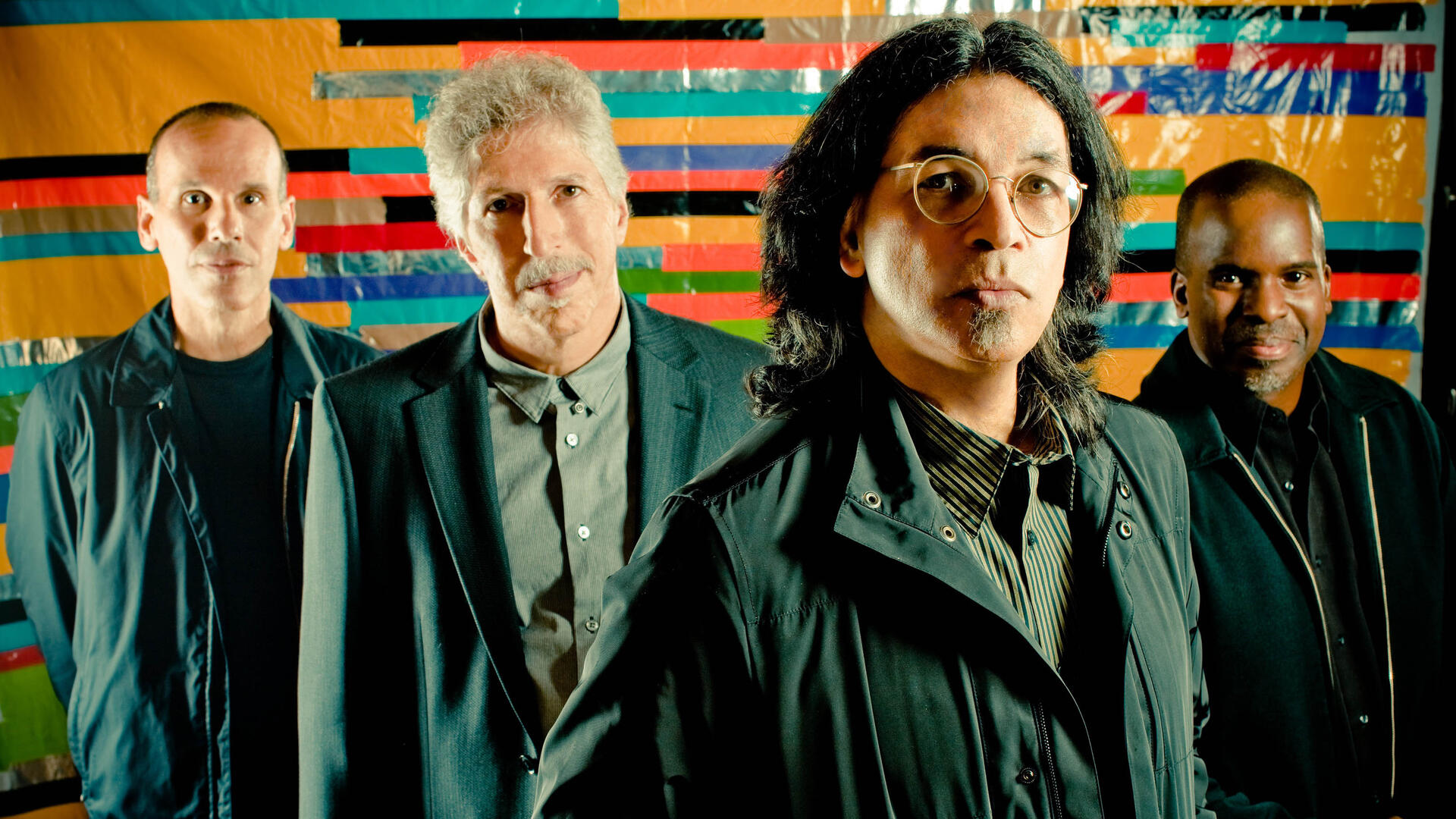Yellowjackets

Yellowjackets, the jazz fusion maestros who've been buzzing around the music scene since the late '70s Formed in 1977 by Robben Ford, Russell Ferrante, Jimmy Haslip, and Ricky Lawson, this quartet set out to redefine the boundaries of jazz with their electrifying blend of funk, R&B, and rock.
Full disclosure, they are my favorite instrumental band so I may be biased! I’ve always been jazz empathetic (sounds like an ailment, probably is!) but could never get on with acoustic jazz. To engage me you have to have an electric bass player and lean into jazz/rock/fusion. Yellowjackets can do all that that effortlessly but really they defy genre pigeonholing, they are unique. One of One.
They can hard bop but mostly what attracts me is their melodic composition. They take you to a place no one else does and have been the soundtrack to my life, through ups and downs, since I discovered them properly with the album “Four Corners” on a diving vacation to Bermuda. I had heard of them before, even had the second album Mirage a Trois on vinyl but Yellowjackets were too obscure to be stocked in UK record stores. After that I sought them out on every US trip.
Albums
Their self-titled debut album, "Yellowjackets" (1981), was a breath of fresh air in the jazz world, showcasing their virtuosity and knack for infectious melodies. Tracks like "Matinee Idol" and "Sittin' In It" caught the ears of critics and fans alike, setting the stage for a career that would span decades.
Throughout the '80s and '90s, Yellowjackets continued to push the envelope with albums like "Four Corners" (1987) and "Greenhouse" (1991), earning them critical acclaim and a dedicated following.
Awards
Their Grammy-winning streak began in 1986 with their album "Shades," which snagged the award for Best Jazz Fusion Performance. They followed it up with wins in 1987 for "Politics" and in 1989 for "The Spin." Their collaboration with vocalist Bobby McFerrin on "Jacket Town" from the album "Like a River" (1993) earned them another Grammy nomination, showcasing their versatility and willingness to explore new musical territory.
Lineup
The lineup may have evolved over the years, with talented musicians like Marc Russo, William Kennedy, and Bob Mintzer joining the ranks, but the core essence of Yellowjackets remained unchanged; a commitment to pushing the boundaries of jazz while staying true to their roots.
Best Bassist?: Personally I prefer the ‘classic’ lineup with Jimmy Haslip bass (1977–2012) who was replaced on bass by Jaco Pastorius’ son Felix and later Australian bass player Dane Alderson.
Best drummer?: Both Bill Kennedy (1987–1999, 2010–present) and Marcus Baylor (2000–2010) did a great job but hey, they even had Legend Peter Erskine for a short spell (1999-2000)
Bob Mintzer: what a legend, he plays that Tenor sax like a ‘real man’ – wouldn’t be seen (or heard) dead doing that squealing thing some sax players do thinking it sounds good. Just ask Miles Davis – he would never use vibrato on his trumpet playing. I also love what he adds to the sonic texture with his haunting synth lines (played on an Akai wind controller).
Russ Ferrante: what a keyboardist. I hate piano solos, well I find them hard to hold my attention but Russ stacks those triads in such a pleasing way I could (and do) listen to him all day. Half of his game in the Yellowjackets chair is about those orchestral pads and synth lines that elevate the compositions into another universe.
Like any band worth their salt, Yellowjackets haven't been immune to a bit of gossip and drama. Rumors of creative differences and tension behind the scenes have occasionally surfaced, but they've always managed to rise above it, letting their music speak for itself.
Legacy
Today Yellowjackets is as strong as ever. See them live, you won’t see a better band than this!
Yellowjackets ratings

Songs: Greenhouse, Capetown, Red Sea